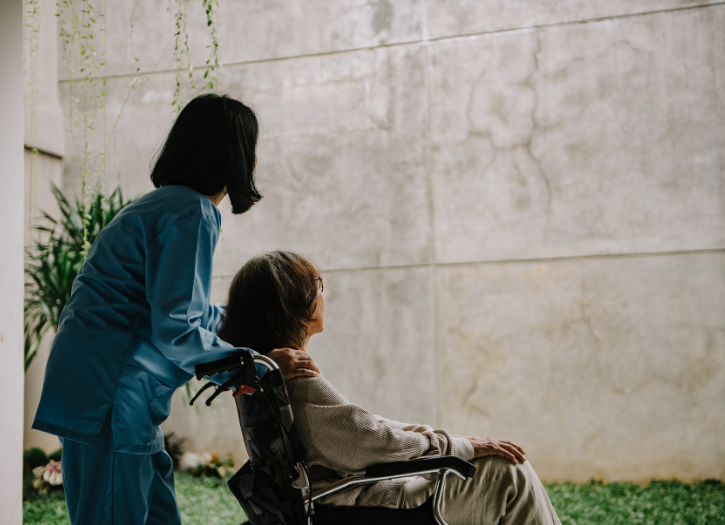Caring for an aging loved one is a responsibility that comes with many challenges. Whether it’s a parent, grandparent, or spouse, ensuring they receive the care, respect, and legal protections they deserve is essential. However, many women in Columbus and beyond are unaware of the rights seniors have, and this lack of knowledge can put them at risk of neglect, mistreatment, or even financial exploitation.
So, how can you better advocate for your loved one? By being informed and proactive. In this post, we’ll discuss six key rights every woman should know when looking after an elderly family member, helping you protect their dignity and well-being.
Let’s get started!
The Right to Dignity and Respect
Every aging individual has the right to live with dignity and be treated with respect. Regardless of their health condition, they should never be subjected to neglect, humiliation, or mistreatment. This applies whether they are living in their own home, with family, or in a nursing facility.
Unfortunately, cases of elder mistreatment are more common than people realize. According to the stats, about 1 in 10 adults over 60 years has suffered from some form of abuse, including verbal insults, neglect, or emotional harm. Many of these cases go unreported because the elderly person may feel helpless or afraid to speak up.
So, you should always treat your loved one with kindness, patience, and respect. If they suspect emotional or physical mistreatment, immediate action should be taken.
The Right to Be Free from Abuse and Neglect
Every elderly individual has the right to live without abuse or neglect, yet many seniors suffer in silence. Abuse can take many forms—physical, emotional, financial, or medical neglect—and often goes unnoticed. According to studies, 1 in 10 seniors experience abuse, but many cases remain unreported. Women, who often take on caregiving roles, must be aware of these risks and take action when necessary.
Warning signs of elder abuse include unexplained injuries, malnutrition, sudden mood changes, and poor hygiene. If a loved one is in a care facility, frequent visits and open communication can help detect mistreatment early.
If abuse is suspected, seeking legal help from experts like Nursing Home Abuse & Neglect Lawyer Columbus, GA, can assist in investigating claims and holding responsible parties accountable. A trusted legal team ensures that elderly individuals receive the justice and protection they deserve. With a strong commitment to fighting elder mistreatment, these professionals work tirelessly to achieve substantial settlements and verdicts for victims and their families.
The Right to Participate in Decisions
Elderly individuals have the right to be involved in decisions regarding their health, finances, and daily life. As long as they are mentally capable, they should have a say in where they live, what medical treatments they receive, and how their money is managed.
However, many seniors are pressured or manipulated into making decisions they don’t fully understand. This can happen when family members, caregivers, or even financial advisors take advantage of their trust.
To prevent this, families should ensure their loved ones are given clear information about their options. If an elderly person has dementia or another cognitive condition, legal arrangements such as power of attorney or guardianship may be needed to protect their interests.
The Right to Financial Protection
Financial exploitation is one of the most common and overlooked forms of elder abuse. According to the FBI, seniors in the U.S. lose over $3 billion each year due to scams, identity theft, and financial manipulation. Many elderly individuals fall victim to fraudulent schemes, fake charities, and dishonest caregivers who take advantage of their vulnerability.
To protect an aging loved one’s financial well-being:
- Monitor bank statements and suspicious transactions regularly.
- Set up direct deposits for Social Security and pension payments.
- Be cautious about who has access to their financial information.
- Encourage estate planning with trusted professionals to prevent exploitation.
If financial abuse is suspected, family members should report it to the authorities and seek legal action.
The Right to Privacy and Confidentiality
Just like anyone else, seniors have the right to keep their personal, financial, and medical information private. This means their medical records should only be shared with authorized individuals, and their living space should be respected—whether in a nursing home or their own home.
Unfortunately, some caregivers, family members, or institutions violate these rights by making decisions without the senior’s consent. Women, as caregivers, must ensure that their loved one’s personal space, phone calls, and mail are not interfered with unless legally necessary. If privacy is violated, legal action can be taken.
Final Thoughts
Caring for an aging loved one is a big responsibility, but understanding their rights ensures they receive proper care, dignity, and protection. Stay informed, advocate when necessary, and take action if you suspect mistreatment. Your loved one’s safety depends on it.







Add Comment